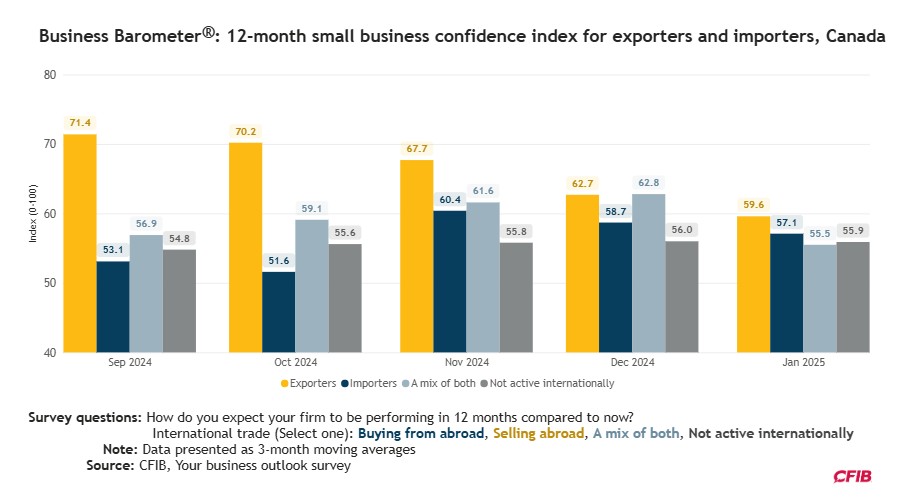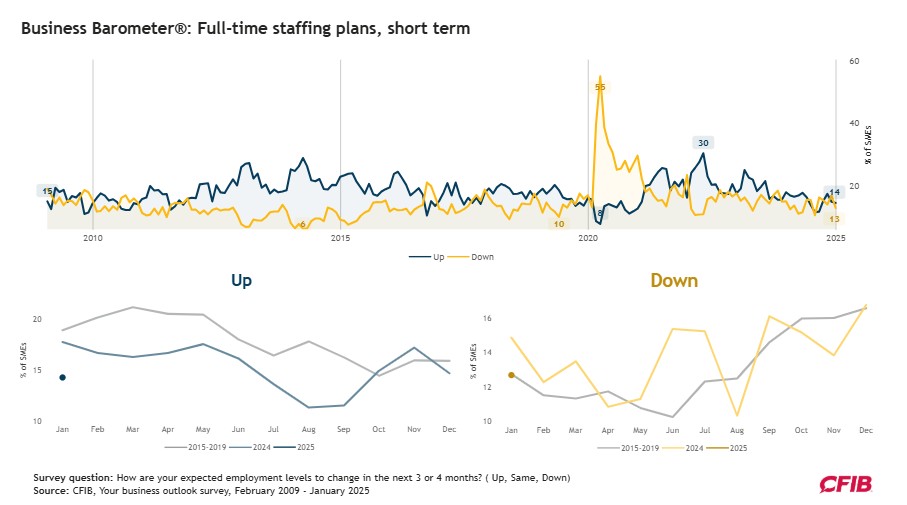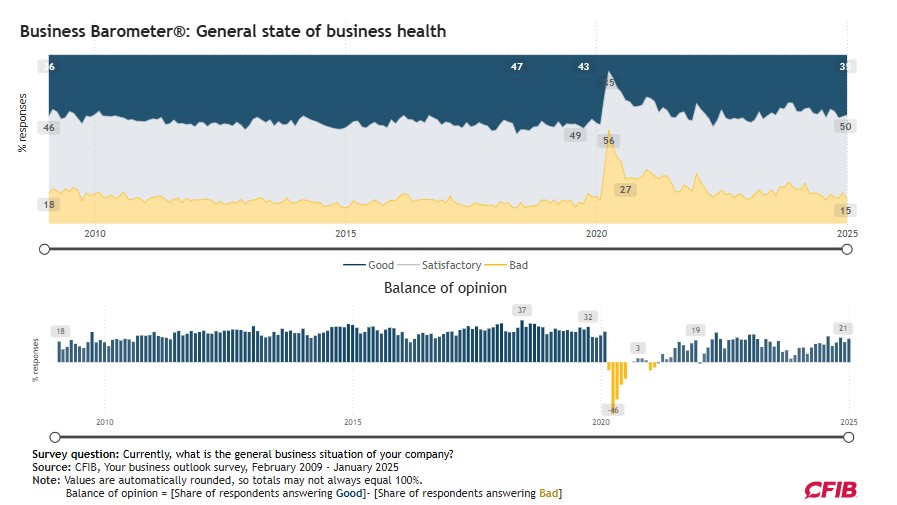'The threat of upcoming U.S. tariffs and political changes in Canada have installed a lot of fog in front of the windshield'

Small business optimism in Canada has taken another hit, with the Canadian Federation of Independent Business (CFIB) reporting a second consecutive monthly decline in its Business Barometer.
The long-term confidence index, which measures expectations for the next 12 months, fell to 54.6, a drop of 5 points since November.
Exporting small businesses were particularly affected, with confidence plummeting 8.1 points since November. Importing businesses also reported a decline in optimism, falling 3.3 points.
“The threat of upcoming U.S. tariffs and political changes in Canada have installed a lot of fog in front of the windshield,” said Simon Gaudreault, CFIB’s chief economist and vice-president of research.
“Our economy is already paying the price of this lack of direction. The uncertainty is making it harder for businesses to plan ahead and make critical decisions, such as hiring or investment.”

Hiring plans weak as businesses face demand and cost challenges
Despite a slight improvement in overall business health in January, hiring sentiment remains weak. Small business owners are hesitant to expand their workforce, CFIB reported, with challenges such as:
- increasing tax and regulatory expenses (70%)
- rising insurance costs (68%)
- wage increases (65%) putting on pressure.
Across all industries, weak demand remains a persistent issue, with 52% of businesses identifying insufficient demand as their primary barrier to growth.
“The various barriers to domestic trade, ill-timed tax increases and our epic red tape have been strangling Canada’s entrepreneurs for far too long, so it’s not surprising that Canada has entered this critical period in such a weak position,” said Gaudreault.
“With U.S. tariffs that could be coming our way this weekend, in the short term we need to rapidly send business owners a signal they will be supported, while ensuring in the longer term they are in a better position to diversify their markets, innovate and grow. A good place for governments to start would be to reduce red tape, to roll back taxes including on capital gains and carbon, and to remove well-known internal trade barriers.”
Notably, due to the recent prorogation of parliament, a bill which would have reduced compliance-related red tape for businesses if passed was left on the senate floor.

Some sectors see gains, but confidence below historical levels
While most industries reported declining confidence, a few sectors experienced modest improvements in long-term optimism:
- Retail: +6.9 points
- Health and education: +5.2 points
- Transportation: +4.2 points
- Hospitality: +1.5 points
However, these increases do not indicate sustained growth, as most sectors remain below their historical optimism levels.
“The jury is still out on the final impact of the GST/HST tax holiday on involved firms. We will see in the next few weeks how they experience the last stretch of the tax holiday,” said Andreea Bourgeois, Director of Economics at CFIB.
“This includes of course a repeat of the administrative challenges and costs they had to face during the implementation rush, but this time merely to go back to business as usual,”

Provincial outlook: mixed confidence levels across Canada
“Most provinces are on alert and sticking to their ‘wait-and-see’ approach, resulting in small changes to confidence either downwards or upwards,” the report stated.
Regionally, British Columbia (-4.5 points), Ontario (-1.8 points), and New Brunswick (-1.4 points) recorded the largest drops in confidence.
Meanwhile, Manitoba and Saskatchewan saw slight gains (+1.9 points each). Other provinces remained relatively unchanged, with businesses taking a cautious approach amid economic uncertainty.




